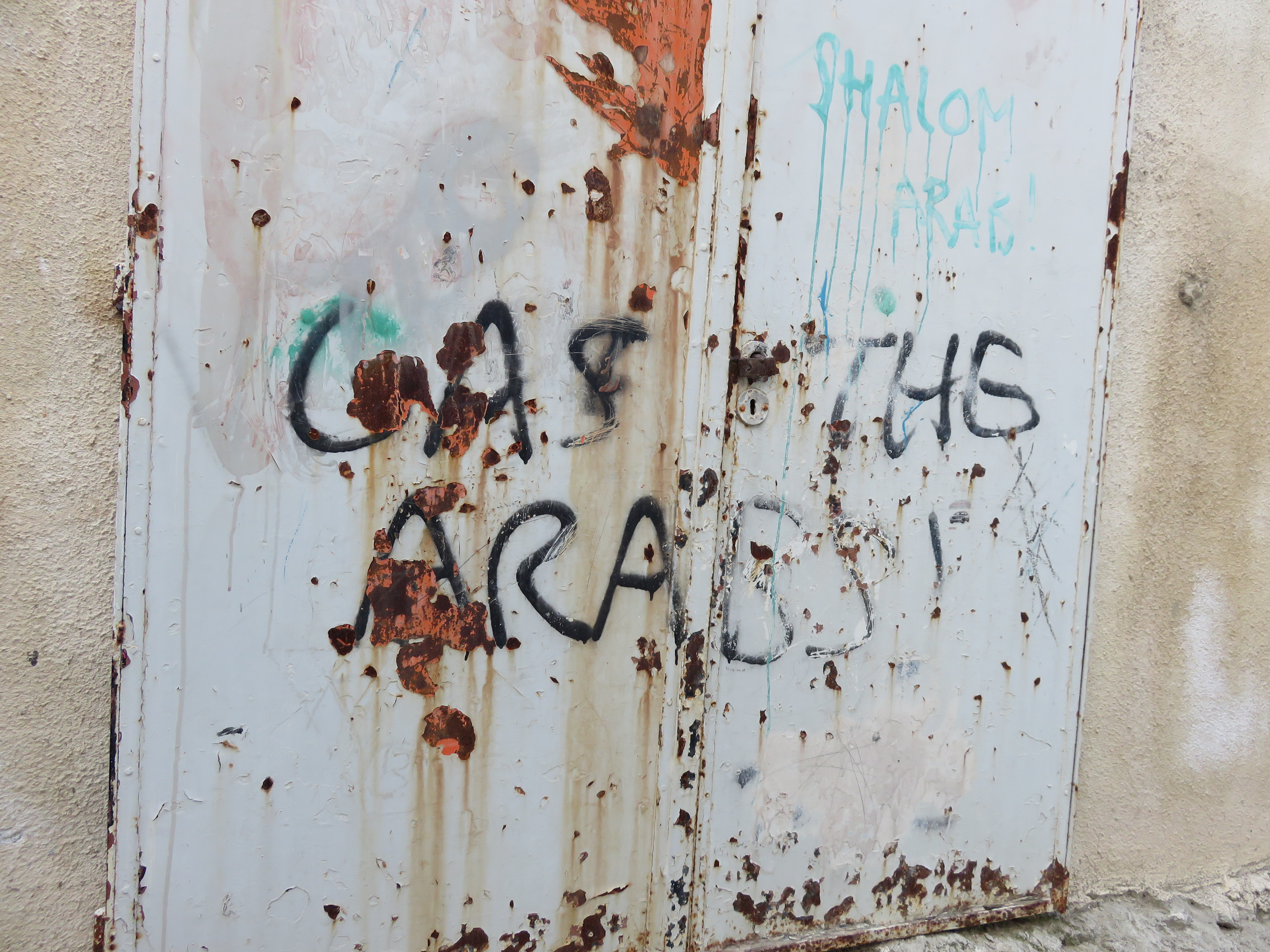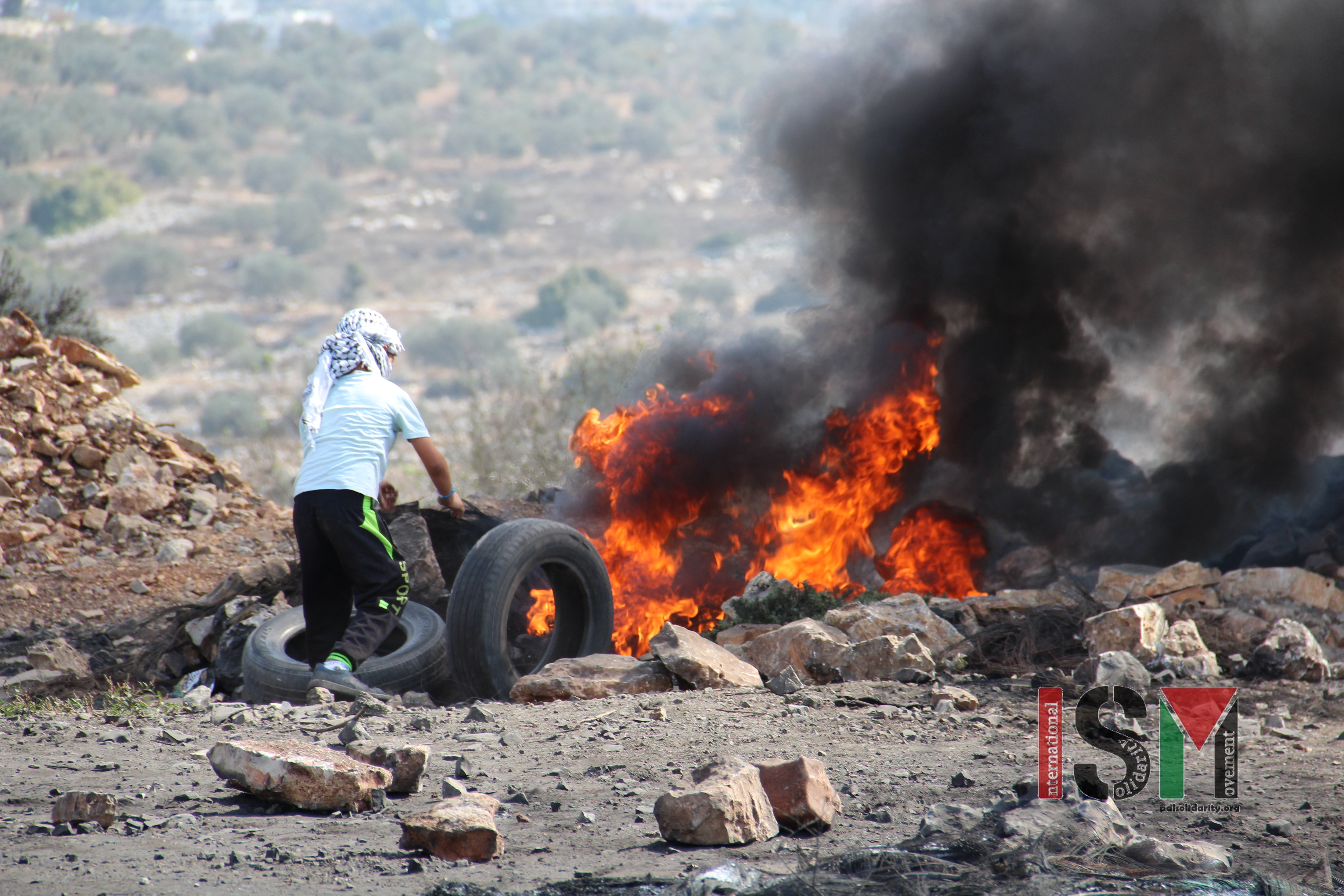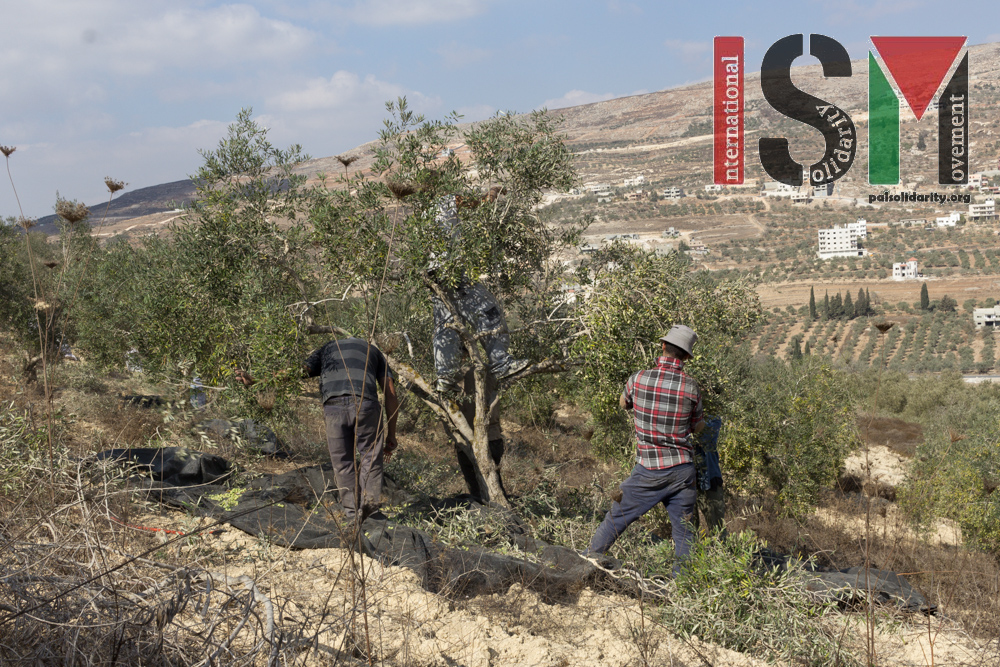-
Remembering Hummam, Remembering Islam: Reflections on genocide, one year on.
27th October 2016 | International Solidarity Movement, al-Khalil team | Hebron, occupied Palestine Acts of injustice done between the setting and the rising sun In history lie like bones, each one. – W. H. Auden, from “The Ascent of F6″ Today marks one year since the murder of a young man outside the ISM […]
-
Kafr Qaddum: Peaceful people under violent occupation
25th October 2016 | International Solidarity Movement, al-Khalil team | Hebron, occupied Palestine Last Friday I attended a demonstration in the small town of Kafr Qaddum, situated in the Northern region of the West Bank, just west of the city of Nablus. In 1974 Israel began to illegally erect settlements in the nearby Keddumin area. […]
-
Protective Presence at Burin olive harvest
24th October 2016 | International Solidarity Movement, Nablus-team | Burin, occupied Palestine Today, international activists joined members of the Najjar family from the village of Burin to harvest their olives and provide a protective presence should settler colonists or Israeli forces attempt to attack and disrupt the harvesting. Thankfully, there were no violent incidents todayand the […]
Action Alert An Nabi Saleh Apartheid Wall Arrests BDS Bethlehem Bil'in Cast Lead Demonstration Denial of Entry Ethnic Cleansing Farmers Gaza Global Actions Hebron House Demolition International law Israeli Army Jerusalem Live Ammunition Nablus Ni'lin Prisoner Ramallah Rubber-coated steel bullets Settlement Settlers Settler violence Tear-Gas Canister Video



